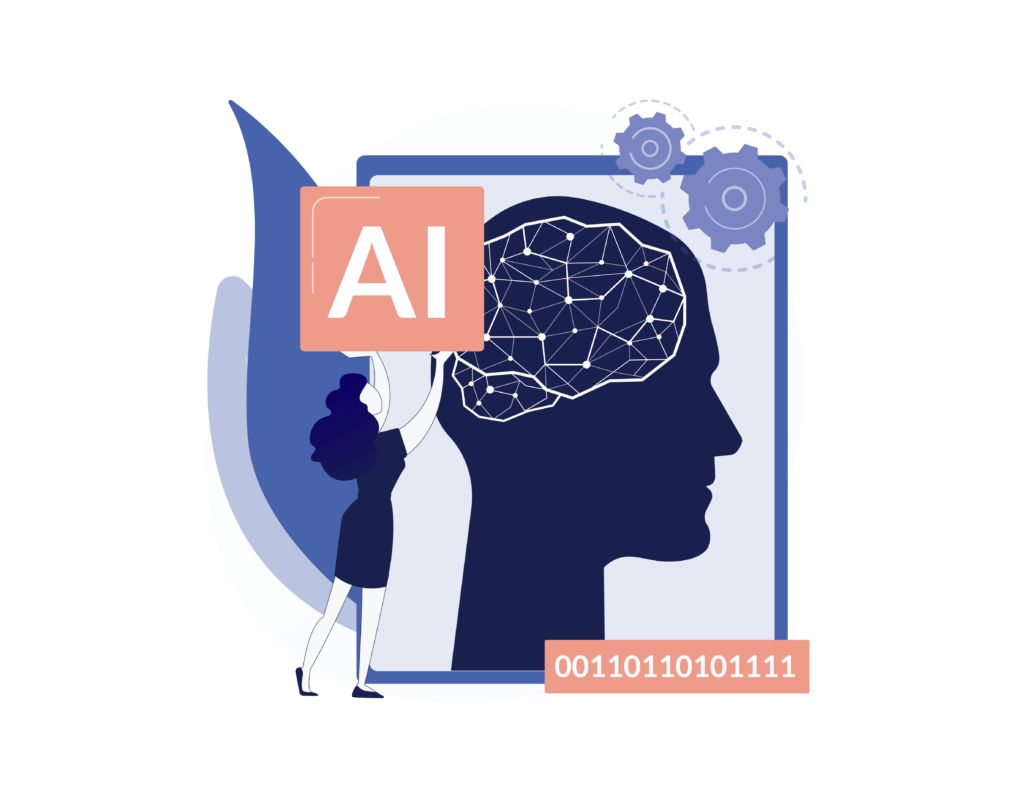The Intersection of AI, Business, and Machine Learning: A Winning Career Option
In the modern digitized era, data is a crucial asset for companies across a myriad of sectors. The desire to harness the full potential of data has surged, making data engineers an integral part of any progressive organization. As we venture into 2023, data engineering emerges as an exhilarating and lucrative career path, perfect for those driven by a passion to utilize artificial intelligence (AI) and machine learning (ML) to propel business growth.
The Indispensable Role of Data Engineers
The realm of data engineering involves designing, developing, and sustaining robust data systems that underpin effective data management and analysis. The task of building resilient data pipelines, ensuring data accuracy and dependability, and streamlining data processing and storage falls on the capable shoulders of data engineers. Their contributions are instrumental in helping organizations transform raw data into actionable intelligence. As AI and ML technologies evolve at a breathtaking pace, data engineers are at the vanguard of merging these innovative capabilities with business processes, spurring creativity and fostering a competitive edge.
Journey to Becoming a Data Engineer
Are you aspiring to carve a career in data engineering? Here are some key milestones to guide your journey. Though each path may be unique, the following roadmap outlines the essential steps to transition into data engineering from any starting point.
Step 1: Re-evaluate Your Education and Credentials
The first step on your journey toward data engineering involves reviewing your educational credentials. While a degree in computer science or a similar field is advantageous, it’s not a strict prerequisite. Many proficient data engineers come from varied academic backgrounds and acquire the necessary skills through specialized training, certification courses, or independent study.
Step 2: Hone Your Skills as a Data Engineer
To thrive in data engineering, you must master a broad skillset. This includes expertise in programming languages like Python and R, a deep understanding of database systems, data modeling, and ETL (Extract, Transform, Load) operations. Familiarity with tools and frameworks such as Apache Spark, Apache Hadoop, and distributed computing is critical for managing and analyzing substantial datasets efficiently.
Step 3: Construct Your Data Engineer Portfolio
Creating a compelling portfolio is vital to exhibit your skills and practical experience as a data engineer. Take on projects that showcase your ability to design and implement data pipelines, carry out data preprocessing and feature engineering, and develop data analysis and prediction models.
Step 4: Venture into the Job Market as a Data Engineer
Once you’ve built a solid skills foundation and an impressive portfolio, it’s time to step into the job market. Seek opportunities in diverse sectors, from tech firms to healthcare, finance, and e-commerce. Customize your resume and cover letter to emphasize relevant skills and projects that align with job specifications. Engaging in networking, attending industry events, and maximizing online platforms such as LinkedIn can also bolster your chances of securing appropriate job opportunities.
Step 5: Brace Yourself for the Data Engineering Interview
During the job application process, thorough preparation for data engineering interviews is essential. Ensure you’re conversant with common interview questions related to data engineering principles, algorithms, and best practices. Be prepared to discuss previous projects, problem-solving abilities, and experience with relevant tools and technologies. Additionally, hone your communication skills to explain complex technical concepts in a clear, concise manner.
Data Engineer Salary Prospects
Data engineering is a rapidly emerging field, and the search for qualified candidates often poses a challenge for companies. This talent scarcity leads to a high demand and appealing compensation packages for data engineers. Various job portals report that the average salary for data engineers in the United States fluctuates between $76,000 and $166,000 annually. As you build upon your experience and expertise, your earning capacity in this sector is poised to rise significantly.
Leveraging AI for Business: Amplifying Decision-Making and Innovation
While the terms artificial intelligence (AI) and machine learning (ML) are often used interchangeably, they bear distinctive implications. AI is revolutionizing businesses, enabling unprecedented opportunities for data-oriented decision-making, automation, and innovation. Data engineers serve as the backbone in harnessing AI for business operations, enhancing productivity, and unearthing novel insights. By constructing intricate data pipelines that integrate AI models, data engineers empower organizations to automate tasks, discern patterns, and secure a competitive edge.
One pivotal aspect of data engineering is the smooth integration of ML algorithms into data processing workflows. This integration equips businesses to make more precise predictions, customize user experiences, optimize resource allocation, and boost operational efficiency.

The Power of Machine Learning Languages for Data Engineers
Machine learning languages, particularly Python and R, have emerged as essential tools for data engineers. These languages come packed with rich libraries, frameworks, and tools for data manipulation, analysis, and model development. Python, in particular, is highly esteemed within the data engineering community for its versatility, user-friendliness, and comprehensive ecosystem.
Mastery of machine learning languages equips data engineers with the capability to perform crucial tasks such as data preprocessing, feature engineering, model training, and evaluation. It also fosters efficient collaboration with data scientists, enabling data engineers to interpret their modeling needs and translate them into scalable pipelines. By harnessing machine learning languages, data engineers contribute to the creation of precise and dependable models that propel data-driven decision-making.
Data Engineering’s Future: Broadening Skill Horizons
As the domain of data engineering undergoes rapid transformation, data engineers must stay abreast with evolving technologies and methodologies. Besides a strong foundation in database systems, data modeling, and ETL operations, data engineers in 2023 will find value in broadening their skill sets in several crucial areas.
Firstly, a grasp of cloud computing platforms, such as AWS (Amazon Web Services), GCP (Google Cloud Platform), and Azure, is crucial for constructing scalable and cost-effective data infrastructures. Data engineers need to utilize cloud services for efficient data storage, computation, and deployment of data solutions.
Secondly, proficiency in big data technologies, including Apache Hadoop, Apache Spark, and distributed computing frameworks, is paramount for processing and analyzing vast datasets effectively. These technologies furnish the necessary tools and frameworks for handling the volume, variety, and velocity of big data, enabling data engineers to extract valuable insights and drive informed decision-making.
Lastly, containerization technologies like Docker and Kubernetes offer data engineers the capability to package and deploy data solutions as transportable and scalable units. Containers ensure an efficient and consistent environment for deploying data pipelines and applications across different computing platforms, reducing dependency issues and streamlining deployment processes.
The demand for data engineers has been on an exponential rise since 2016, leading to a dearth of skilled data engineers and a proliferation of job openings. According to a 2020 report by DICE, data engineering is the fastest-growing job role, witnessing a 50% annual growth in 2019.
Conclusion
In 2023, a career in data engineering is more than just a promising option – it’s an opportunity to shape the future. As businesses increasingly embrace the power of data and AI, data engineers are integral in constructing robust data infrastructure and seamlessly integrating AI and ML capabilities. By mastering machine learning languages and keeping pace with evolving technologies, data engineers can spearhead business success through effective data management, insightful analysis, and creative solutions. Launching a career in data engineering in 2023 opens up exhilarating avenues to contribute to the dynamic realm of AI for businesses and sculpt the future of data-centric organizations.
Data engineers who commit to staying current with industry trends and continually broadening their skill sets can further elevate their professional growth. They have the opportunity to evolve into indispensable assets in the ever-changing landscape of data engineering. The journey might be challenging, but the rewards of being a data engineer in 2023 and beyond – from career progression to financial compensation – are undeniably appealing.
Stepping into the role of a data engineer in 2023 means standing at the intersection of technological innovation and business strategy. It means having the power to transform businesses through data, driving decision-making, and unlocking new areas of growth. The horizon of data engineering is expanding, and those with the passion and skills to navigate this landscape will find themselves leading the charge in shaping the data-driven organizations of tomorrow.





